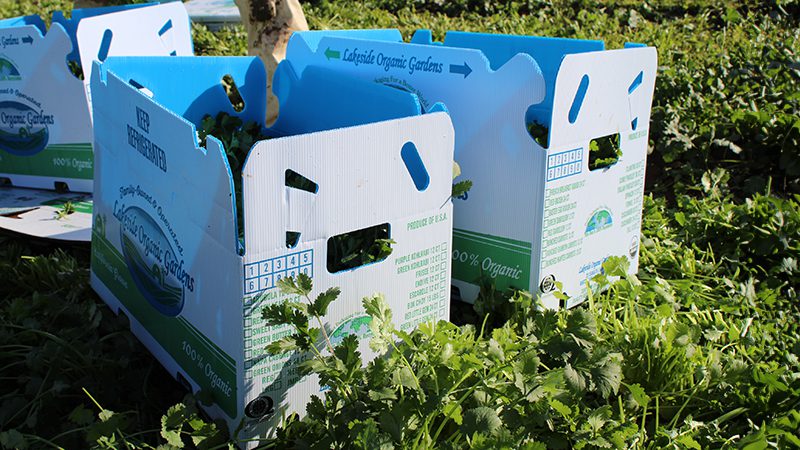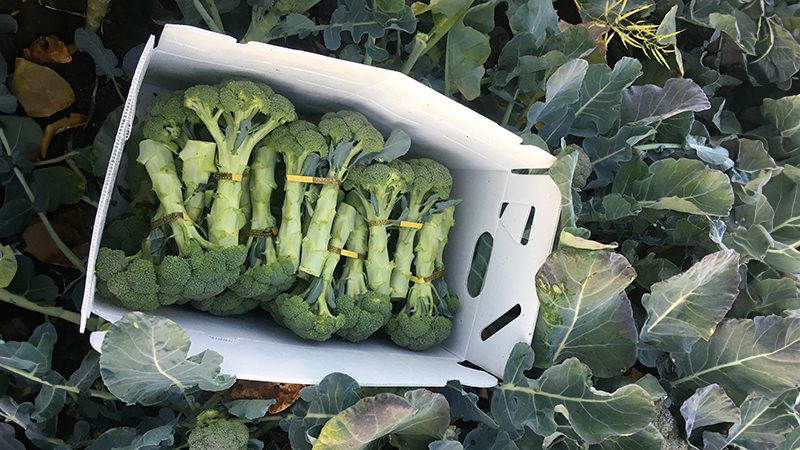How a 135-year-old Seattle company made produce boxes better
This article was originally published in April 2024

Produce boxes meant wooden crates when Erika Frayser’s great-great-grandfather founded his packaging company in 1889, the same year Washington became a state.
The Seattle-Tacoma Box Company (originally the Queen City Manufacturing Company) has evolved along with the Northwest, but it’s still family-owned.
By the 1980s, the company was producing waxed corrugated cardboard boxes for customers packing “wet” vegetables like asparagus (which is stored vertically with a little water in the bottom) and broccoli (which is covered with ice). The material was water-resistant — but customers were saying “we need a recyclable solution.” In 2014 Frayser’s father and grandfather began looking into producing plastic corrugated boxes.
“It’s a totally different industry. Plastic versus paper cannot be more different,” Frayser said.
Family members “got their Harvard degree” in creating a workable box, and customers loved that it didn’t disintegrate the way wet cardboard had, she said. The company built a new production plant for that line of boxes in Arizona in 2019.
Frayser, a sixth-generation member of the business, was tasked with a way to recycle the plastic corrugated boxes — and more. “Our goal at the end of the day was, we didn’t want just to get it recycled, we wanted to reintroduce it into new packaging,” so that every new box would be made with some recycled content.
It was a long process that included receiving FDA approvals (because the boxes are used to package food) and a struggle to find recyclers with the capability and capacity to wash and handle their products.
The recycler pelletize the cleaned boxes into plastic beads and those beads go back into Seattle Box Co.’s manufacturing process. The company worked with an engineer to make sure their production lines could handle up to 25% recycled material in the new boxes. “He thinks we can do more, but we can only put in as much post-consumer (content) as we collect… as more and more stores start to join the program we can go from there and say OK, now we’re at 25%, what do we need to do to get to 35%, and so on.”
For that to happen, Seattle Box Co. had to find a way to get the boxes back.

“Our goal is always to figure out where the box ended up. And we don’t always know that, because we’re the manufacturer,” Frayser said.
“We work with the farmers, but we didn’t know where the farmers were sending the boxes” (once they were filled.)
Huge retailers “can just collect a whole truckload of horizontal bales that each weigh 1000 pounds,” Frayser said, and it makes sense financially for them to return them to Seattle Box Co. for reimbursements. Smaller users like PCC had fewer options.
Frayser encountered PCC produce managers at a trade meeting, and they told her that store workers were frustrated that the plastic boxes weren’t allowed in their commercial recycling bins and were going to landfills instead.
A solution did exist, though: PCC works with Seadrunar Recycling (see story here), which is now collecting the corrugated plastic boxes from some PCC stores, and working toward collecting from all.
An added advantage is that Seadrunar already gets these plastic boxes from other sources and “were having to do some heavy lifting figuring out where to send it,” said Erik Lind, PCC’s Operations, Programs and Projects Manager. Now that they’re connected directly, a loop was closed.
“Seadrunar gets more volume. We get the boxes back. PCC gets to recycle and other people get to recycle, so it’s a really cool team effort…,” she said.
“Everyone talks about sustainability and closed loops and all these different things and it takes every single person to make it work and figure it out.”
